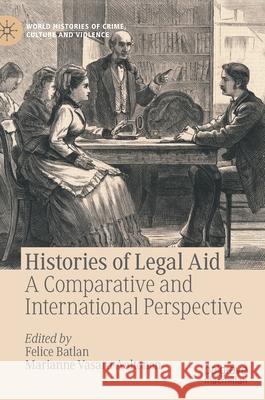Histories of Legal Aid: A Comparative and International Perspective » książka
topmenu
Histories of Legal Aid: A Comparative and International Perspective
ISBN-13: 9783030802707 / Angielski / Twarda / 2022 / 348 str.
Histories of Legal Aid: A Comparative and International Perspective
ISBN-13: 9783030802707 / Angielski / Twarda / 2022 / 348 str.
cena 562,23 zł
(netto: 535,46 VAT: 5%)
Najniższa cena z 30 dni: 539,74 zł
(netto: 535,46 VAT: 5%)
Najniższa cena z 30 dni: 539,74 zł
Termin realizacji zamówienia:
ok. 22 dni roboczych.
ok. 22 dni roboczych.
Darmowa dostawa!
Kategorie BISAC:
Wydawca:
Palgrave MacMillan
Seria wydawnicza:
Język:
Angielski
ISBN-13:
9783030802707
Rok wydania:
2022
Wydanie:
2021
Numer serii:
000793608
Ilość stron:
348
Waga:
0.56 kg
Wymiary:
21.01 x 14.81 x 2.06
Oprawa:
Twarda
Wolumenów:
01
Dodatkowe informacje:
Wydanie ilustrowane











